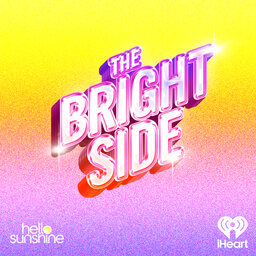The Power and Possibility of Psychedelics with Dr. Harriet De Wit
Delve into the fascinating world of psychedelics with Dr. Harriet De Wit, a renowned expert in psychiatry and behavioral neuroscience. Discover what truly happens in the brain during psychedelic experiences, from the science behind microdosing to the potential of psychedelics as treatments for mood disorders and even PTSD. Dr. De Wit provides insights into the effects of MDMA and LSD, the history of these substances, and how societal perceptions are shifting. Plus, get a sneak peek into Reese’s 100th Book Club pick, "The Comfort of Crows" by Margaret Renkl, and how it beautifully intertwines memoir and nature writing.
In 1 playlist(s)
The Bright Side: A Hello Sunshine Podcast
The Bright Side, the hit podcast from Hello Sunshine, is back for a brand new season! Every Monday, …Social links
Follow podcast
Recent clips

Self-Care Is a Lie We’ve Been Sold—Dr. Pooja Lakshmin Explains What Actually Heals Us
46:53

Understanding GLP-1 Medications: Hormones, Menopause & the Science Behind the Headlines with Dr. Rocio Salas-Whalen
38:19

Replay: Karen Pittman on The Morning Show's Wild New Season and Leaving Imposter Syndrome Behind
41:46
 The Bright Side: A Hello Sunshine Podcast
The Bright Side: A Hello Sunshine Podcast